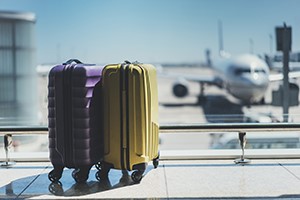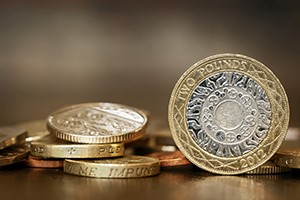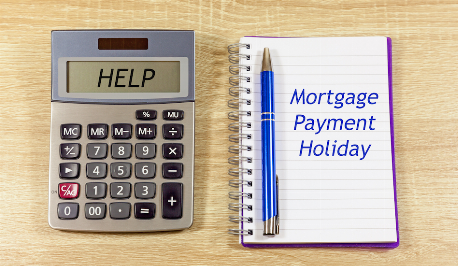Seven in pocket
 Girls are getting more pocket money than boys for the first time in a decade, averaging £7.09 a week according to the Halifax Pocket Money report. The average weekly amount boys receive has dropped by 14p since last year to just £6.91, 18p less than the girls receive.
Girls are getting more pocket money than boys for the first time in a decade, averaging £7.09 a week according to the Halifax Pocket Money report. The average weekly amount boys receive has dropped by 14p since last year to just £6.91, 18p less than the girls receive.
The overall average amount of pocket money children receive has also dropped for the first time in four years. The average weekly amount kids receive is now £7.01p, a 3p drop from last year’s average. Halifax estimates this equates to a national weekly pocket money deficit of £235,405 or enough money to buy 21,420 LOL dolls. When it comes to how parents dish out the dough, cash is still king, with 84% of parents giving cash to their kids, compared with only one in five (19%) paying it directly to their bank account, and just 3% paying it via a pocket money app.
The majority of parents still encourage their kids to save up the old fashioned way, with the piggy bank keeping a place in many homes, as 60% of parents say they still use one themselves, and three-quarters (76%) of kids say they use one too. Around a third (36%) of parents said they give their children enough pocket money to enable them to understand the value of money and the benefits of saving. It seems to be working too, as more than half (54%) say they believe their children are good at managing money, and four in five (80%) say they feel their kids understand the value of money. Only a quarter of parents (28%) make their children earn their pocket money by doing housework and chores, and nearly half (48%) would withhold pocket money if these jobs are not done properly.
Half (51%) of parents said they would stop giving pocket money as a way to punish bad behaviour, on a par with grounding as one of the most commonly used ways parents try to keep behaviour in check. It seems boys’ expectations to be higher earners start from an early age too, as just over half (51%) said they believe they should be given more pocket money, compared to just 41% of girls. Over half (53%) of girls said they felt they were given the right amount of money.
While almost a quarter of parents (22%) say they give their children as much pocket money as they can afford, nearly half (43%) say they don’t think their children actually need any pocket money at all. But it’s not just parents who are prepared to part with their pennies, as four in ten (39%) kids say they also receive pocket money from grandparents and other relatives.
Keeping watch
The Dedicated Card and Payment Crime Unit (DCPCU) has prevented £25m of fraud and carried out 84 arrests and interviews under caution in the first half of 2018, figures published today reveal.
The DCPCU, a specialist police unit sponsored by the finance industry, achieved estimated savings of £25m from preventing and disrupting fraud in the first half of the year. This brings the total savings from reduced fraud activity to over £540m since the unit was set up in 2002. 26 fraudsters were convicted between January and June 2018 in cases investigated by the DCPCU. This resulted in 33 years imprisonment for those given custodial sentences.
In the same period, the unit has disrupted seven organised crime groups and recovered 8,651 stolen card numbers. In addition, over £122,000 of compensation was returned to victims following the confiscation of criminal assets by the DCPCU.
The DCPCU are warning that criminal gangs are becoming ever increasingly sophisticated taking advantage of new technologies to commit fraud online. But through close cooperation between enforcement and the industry, the aim for the task force is to stay one step ahead and ensure there is no place for fraudsters to hide.
Travelling Lite
 According to the latest statistics from the Association of British Insurers, every week 3,000 holidaymakers every week need emergency medical treatment abroad and are helped by travel insurers with £3.9 million paid out- a six year high. Typical payouts include a £233,000 medical bill for a 15-day hospital stay in the US following a stroke, £185,000 for a 10-day stay in a US hospital to treat a blood clot, and £95,000 for treating a road accident injury in Central America.
According to the latest statistics from the Association of British Insurers, every week 3,000 holidaymakers every week need emergency medical treatment abroad and are helped by travel insurers with £3.9 million paid out- a six year high. Typical payouts include a £233,000 medical bill for a 15-day hospital stay in the US following a stroke, £185,000 for a 10-day stay in a US hospital to treat a blood clot, and £95,000 for treating a road accident injury in Central America.
The costs of needing emergency medical treatment abroad are exposed this week by the Association of British Insurers (ABI). Analysis by the ABI of the 510,000 travel insurance claims reveals that last year Travel insurers helped 159,000 British travellers who needed emergency medical treatment abroad – the equivalent of just over 3,000 a week with the total medical bill estimated to be £201 million.
The cost of an air ambulance back to the UK alone can be very expensive. Typical claims to cover a return trip to the UK include £35,000 from the US, £12,000 from Majorca, and £25,000 from the Canary Islands. Yet despite such jaw-dropping costs, an estimated one-in-five people admit to having travelled abroad without travel insurance, leaving them unprotected against potentially financially crippling medical bills. Of the total 510,000 travel insurance claims dealt with last year, 159,000 medical expenses accounted for 52% of claims costs, cancellations accounted for 38% and lost baggage or money for 4%.
Fear of financial shock
According to new research released by Zurich UK, it appears that British adults have some thinking to do when it comes to their finances.  From the report it is worrying that one in three (34%) do not feel they would be able to recover from a financial shock or loss of income, and do not have the savings in place they need to feel financially resilient. In the findings from its Cost of Resilience study Zurich suggest that the most valuable asset we have is ourselves and our ability to generate an income. Therefore, it’s a concern that nine in 10 are likely to prioritise insuring their mobile phone over themselves.
From the report it is worrying that one in three (34%) do not feel they would be able to recover from a financial shock or loss of income, and do not have the savings in place they need to feel financially resilient. In the findings from its Cost of Resilience study Zurich suggest that the most valuable asset we have is ourselves and our ability to generate an income. Therefore, it’s a concern that nine in 10 are likely to prioritise insuring their mobile phone over themselves.
The report, which was developed with neuroscientist Dr Jack Lewis, also found that 24% of UK adults have no savings, 15% have no idea whether they would be able to cope with a financial shock or not, 11% have income protection, 71% insure their homes; 70%, holidays; and 18% mobile phones and just 37% believe they need to have savings to feel resilient.
The report calls on Insurer’s to encourage people to review their circumstances, assess the solutions available, consider what support exists to protect them and reduce feelings of financial vulnerability. Awareness of products such as an income protection plan, which is designed to provide a regular income if you are unable to work due to illness or disability, needs increasing which in turn could help individuals to feel less vulnerable and more financially resilient.
The report concludes that there is a need to educate people and help them to understand that there are products to ease the stress and worry of a financial shock and loss of income.







